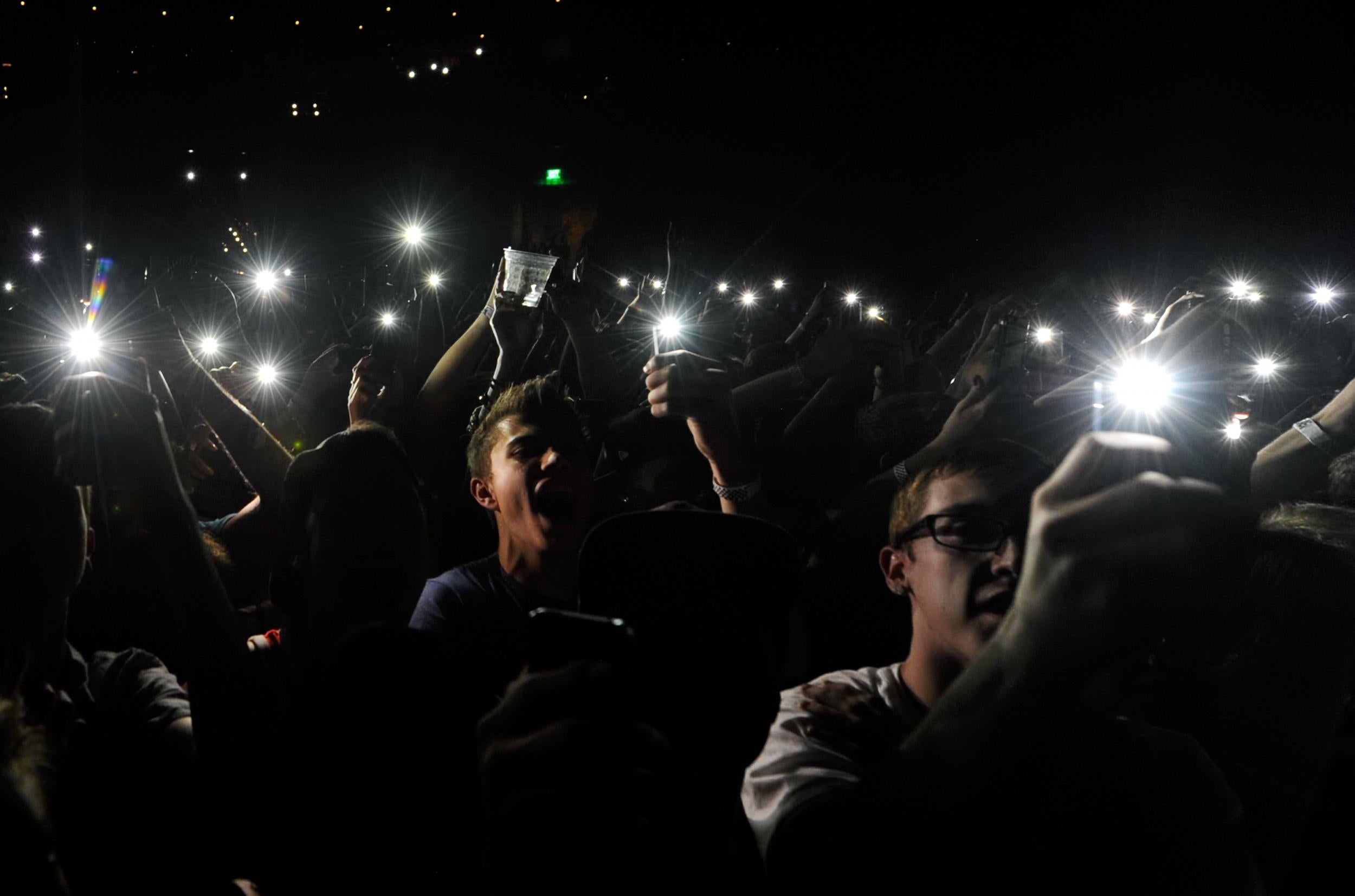Apple has patented iPhone technology that could stop you filming at concerts
Infrared signals could be used to stop fans using their iPhones to film live events

Your support helps us to tell the story
From reproductive rights to climate change to Big Tech, The Independent is on the ground when the story is developing. Whether it's investigating the financials of Elon Musk's pro-Trump PAC or producing our latest documentary, 'The A Word', which shines a light on the American women fighting for reproductive rights, we know how important it is to parse out the facts from the messaging.
At such a critical moment in US history, we need reporters on the ground. Your donation allows us to keep sending journalists to speak to both sides of the story.
The Independent is trusted by Americans across the entire political spectrum. And unlike many other quality news outlets, we choose not to lock Americans out of our reporting and analysis with paywalls. We believe quality journalism should be available to everyone, paid for by those who can afford it.
Your support makes all the difference.Apple has reportedly patented software that can stop people using their iPhones to film live events, in a move that will be met with joy from traditionalists and copyright holders alike.
At a live music event attendees are usually split between those filming the gig or taking photos with their smartphone and those staring at these people with aggravation as they try to watch the performance around a sea of screens. The latter will be pleased that Apple has won approval from the US Patent and Trademark Office for an application it made in 2009 involving technology that would stop fans with iPhones from being able to take photos or record videos at concerts. The patent describes a camera designed to detect infrared signals and how these signals could be used to disable the phone’s recording and photo capturing functions.
“For example, an infrared emitter can be located in areas where picture or video capture is prohibited, and the emitter can generate infrared signals with encoded data that includes commands to disable the recording functions of devices. An electronic device can then receive the infrared signals, decode the data and temporarily disable the device’s recording function based on the command.”
The patent then has a highly specific illustration which shows infrared transmitters being used on stage at a concert with an iPhone screen being held up with the message “Recording Disabled” on its screen.

Aside from this, Apple suggests the technology could also be used to show users more information. For example, museum exhibits fitted with infrared transmitters could send more details about the exhibit directly to a tourist’s mobile phone, making it a virtual tour guide.
This technology could significantly reduce the number of people able to record live music events and prevent at least some unauthorised YouTube uploads. However,there’s also concern that being able to disable mobile phone cameras using these signals could be used to impinge upon freedom of speech and freedom of the press. Whether or not we’ll ever see it implemented is uncertain as patents like this one are frequently granted without ever being implemented.
Join our commenting forum
Join thought-provoking conversations, follow other Independent readers and see their replies
Comments